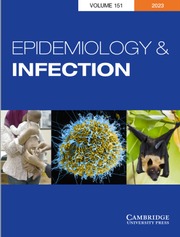Crossref Citations
This article has been cited by the following publications. This list is generated based on data provided by Crossref.
Lau, R. C. H
1988.
Antibody level of New Zealand children immunized with the triple vaccine DTP (diphtheria-tetanus-pertussis).
Epidemiology and Infection,
Vol. 101,
Issue. 2,
p.
405.
Perera, V. Y.
and
Corbel, M. J.
1990.
Human antibody response to fragments A and B of diphtheria toxin and a synthetic peptide of amino acid residues 141–157 of fragment A.
Epidemiology and Infection,
Vol. 105,
Issue. 3,
p.
457.
Khan, M.Zahirul I.
Tucker, Ian G.
and
Opdebeeck, Joan P.
1991.
Cholesterol and lecithin implants for sustained release of antigen: release and erosion in vitro, and antibody response in mice.
International Journal of Pharmaceutics,
Vol. 76,
Issue. 1-2,
p.
161.
CAGLAR, KAYHAN
AYBAY, CEMALETTIN
and
ATAOGLU, HALUK
2005.
Effect of monophosphoryl lipid A on antibody response to diphtheria toxin and its subunits.
APMIS,
Vol. 113,
Issue. 4,
p.
256.


